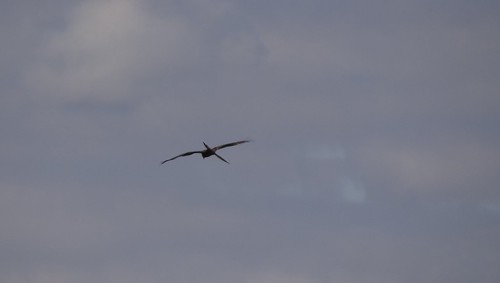The dashing and dramatic red kite was famous in the ancient and medieval world for its boldness: snatching the caps off people’s heads and, no doubt, pestering them for French fries in proto-parking lots.
At times, that audacity served the cause of justice, as Gregory of Tours tells us in his sixth-century Glories of the Saints Confessor:
A wine merchant in Lyon decided to inflate his profits by mixing his wares with water. He succeeded to no small extent, as he was selling water for wine. Once a boatman came down the Saône to market, his purse full of coins. To pay for a purchase, he took a coin out of the purse, which was made of unscraped leather. A kite flying overhead saw the purse and because it was still covered in hair, mistook it for a prey animal and flew down and grabbed it. The kite carried it high into the sky, but when it found that it would have no food from it — for kites eat meat, not air — it dropped its prey, which disappeared into the river where it could not be seen. The cheating wine merchant found this instructive, and acknowledging his guilt said tearfully, “I have sinned and now suffer for it; I accumulated wealth from water, but I see now that all wealth falls into the water and disappears.”
The kite went away hungry, the sailor impoverished — but the merchant was saved.




